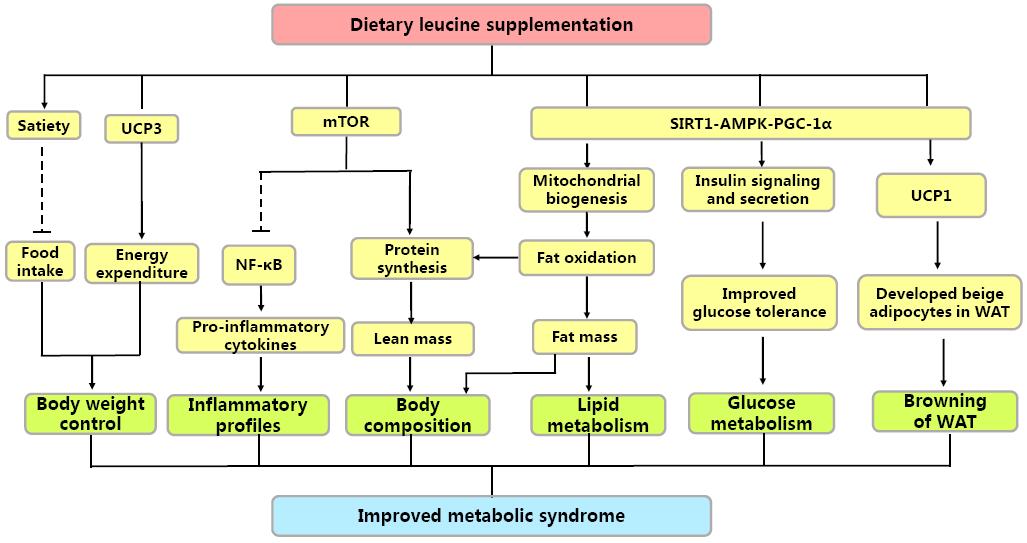
The prevalence of obesity and obesity-related metabolic disorders is rapidly increasing all over the world, increasing the risk to develop insulin resistance and diabetes. Consequently, approaches for reducing the current obesity epidemic are becoming a primary focus of human health care.
Recently, a team of researchers from China Agricultural University, and the Institute of Subtropical Agriculture of Chinese Academy of Sciences (ISA) highlight leucine, an essential and branched-amino acid, as a compound with potential therapeutic value towards obesity and its associated metabolic disorders.
Leucine is an important mediator of appetite and satiety, energy expenditure, lipid and glucose metabolism, insulin sensitivity, chronic inflammation, browning of white adipose tissue, and other metabolic processes. Although not widely appreciated, the beneficial effects of dietary leucine supplementation include increased loss of body weight, reduced WAT inflammation, improved lipid and glucose metabolism, enhanced mitochondrial function, and preserved lean body mass (Figure 1).
However, in contrast to the salutary effects of leucine described above, there is evidence showing that elevated tissue and blood levels of leucine both in obese humans and animals prognosticate future risk of developing diabetes. Therefore, for the use of leucine as a potential therapeutic, the major outstanding question is whether elevated leucine levels cause inacceptable adverse effects, such as augmenting the future risk of developing insulin resistance and diabetes. Thus, further studies are needed to address the safe upper range of leucine that can be used in the treatment of obesity.
The study entitled "Leucine in Obesity: the Therapeutic Potential" has been published in Trends in Pharmacological Sciences, details could be found at http://dx.doi.org/10.1016/j.tips.2016.05.004.

Figure 1. Simplified scheme of possible mechanisms of the beneficial effects of dietary leucine supplementation on the metabolic syndrome. SIRT1, Sirtuin 1; AMPK, AMP-activated protein kinase; PGC-1a, peroxisome proliferator-activated receptor gamma coactivator-1a; WAT, white adipose tissue. (Image by ISA)

86-10-68597521 (day)
86-10-68597289 (night)

52 Sanlihe Rd., Xicheng District,
Beijing, China (100864)

